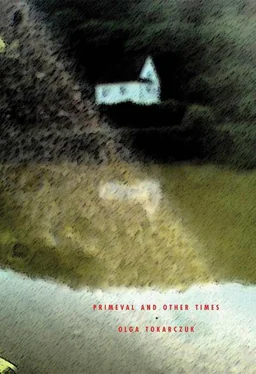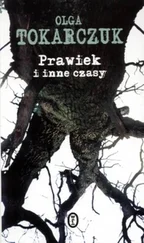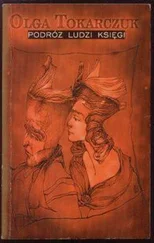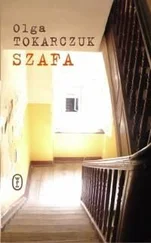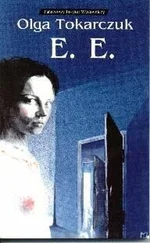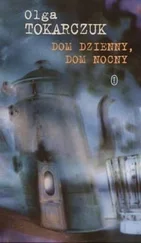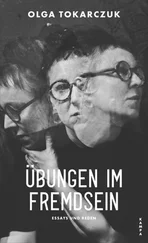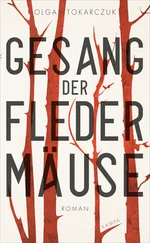After the funeral, once the children had left, the house became very quiet. The silence made Paweł feel uneasy. So he switched on the television and watched all the programmes. The national anthem at the end of broadcasting was his cue to go to bed. Only then did Paweł hear that he was not alone.
Upstairs the floorboards creaked under the trailing, heavy footsteps of Izydor, who never came downstairs any more. His brother-in-law’s presence got on Paweł’s nerves. So one day he went upstairs to his room and encouraged him to go into the old people’s home.
“You’ll have proper care and hot meals,” he said.
To his surprise Izydor didn’t argue. The very next day he was packed to go. When Paweł saw the two cardboard cases and the carrier bag full of clothing, he felt pangs of conscience, but only for a moment.
“He’ll have proper care and hot meals,” he now told himself.
In November the first snow fell, and after that it kept falling and falling. A smell of damp arose in the house, and Paweł fetched out an electric heater from somewhere, which was hardly able to heat up the living room. The television crackled because of the damp and cold, but it did work. Paweł followed the weather forecasts and watched all the news reports, though he wasn’t at all concerned about them. Some governments changed, some characters appeared and disappeared in the little silver window. Just before the holidays his daughters came and fetched him for Christmas Eve. He told them to take him home on the second day of the holiday, and then he saw that the roof of Stasia’s cottage had collapsed under the weight of snow. Now the snow was falling inside, covering the furniture with a fleecy layer: the empty sideboard, the table, the bed in which old Boski used to sleep, and the bedside cabinet. At first Paweł wanted to save the things from the cold and frost, but then he thought he wouldn’t be able to drag the heavy furniture out on his own. And what did he need it for?
“Dad, you made a shoddy roof,” he said to the furniture. “Your shingle has rotted. My house is standing.”
The spring winds knocked over two walls. The living room in Stasia’s cottage changed into a heap of rubble. In summer nettles and dandelions appeared in Stasia’s flower beds, with brightly coloured anemones and peonies blooming despairingly among them. There was a smell of strawberries gone wild. Paweł was astonished to see how quickly decay and destruction progress. As if building houses were contrary to the entire nature of heaven and earth, as if erecting walls and laying stones on top of each other went against the current of time. He found this thought appalling. On television the national anthem stopped and the screen turned to snow. Paweł switched on all the lights and opened the wardrobes.
He saw neatly folded piles of bedclothes, tablecloths, napkins, and towels. He touched their edges, and suddenly his entire body was filled with longing for Misia. So he took out a pile of duvet covers and buried his face in it. They smelled of soap, cleanliness and order, like Misia, like the world as it used to be. He started taking the entire contents out of the wardrobes: his clothes and Misia’s, piles of cotton vests and pants, bags full of socks, Misia’s underwear, her slips that he knew so well, her smooth stockings, suspender belts and bras, her blouses and sweaters. He took the suits off their hangers (lots of them, including the ones with padded shoulders, could still remember the war), trousers with belts trapped in the loops, shirts with stiff collars, dresses and skirts. He spent a long time examining a grey woman’s suit made of thin woollen fabric, and he remembered buying that material, then taking it to the tailor. Misia had demanded wide lapels and inset pockets. He took hats and scarves from the top shelf, and handbags from the bottom shelf. He plunged his hand into their cool, slippery insides, as if gutting a dead animal. A pile of things grew on the floor, cast about in disorder. He thought he should distribute it all to his children. But Adelka had gone. So had Witek. He didn’t even know where they were. Later, however, it occurred to him that only dead people’s clothes are given away, and he was still alive.
“I’m alive and I don’t feel bad. I’ll manage,” he said to himself and went to fetch his violin out of the grandfather clock. He hadn’t played it for ages.
He took it outside onto the front steps and began to play, first This Is Our Last Sunday , then In the Trenches of Manchuria . Moths came flying down to the lamp and circled above his head – a moving halo full of tiny wings and feelers. He kept playing until the stiff, dusty strings snapped, one after another.
When Paweł took Izydor to the old people’s home, he tried to explain the whole situation clearly to the nun who received him:
“He may not be all that old, but he is ailing, and also handicapped. Despite being a sanitation inspector,” – Paweł put special stress on the word “inspector” – “and knowing about many things, I could not guarantee him proper care.”
Izydor willingly agreed to the move. From here he had less of a distance to the graveyard, where his mother, father, and now Misia lay. He was glad Paweł hadn’t managed to finish the tomb, and that Misia was buried with their parents. Every day after breakfast he got dressed and went to sit by them for a while.
But time flows differently in an old people’s home from anywhere else; its stream is thinner. From one month to the next Izydor lost strength, and finally he gave up the graveyard visits.
“I think I’m sick,” he told Sister Aniela, who took care of him. “I think I’m going to die.”
“But Izydor, you’re still young and full of strength,” she said, trying to cheer him up.
“I am old,” he insisted.
He felt disappointed. He thought old age was going to open that third eye, which makes it possible to see right through everything, and to understand how the world works. But nothing became clear to him. Instead his bones ached and he couldn’t sleep. No one came to visit him, neither the dead nor the living. At night he saw his images – Ruta just as he remembered her, and the geometrical visions – empty spaces with angular and oval shapes in them. More and more often these images seemed faded and blurred, and the shapes were twisted and inferior, as if they were aging along with him.
He no longer had the strength to work on his tables. He still dragged himself out of bed and roamed around the building to see his four points of the compass, and that took him all day. The old people’s home had not been built honestly and didn’t have windows facing north, as if its builders were trying to deny this fourth, darkest side of the world, to avoid upsetting the residents. So Izydor had to go out onto the terrace and lean over the railing. Then, around the corner of the building he could see the endless dark woods and the ribbon of the road. The winter completely deprived him of this view because the terraces were locked shut then. So he sat in an armchair in the so-called day room, where the television murmured non-stop, as he tried to forget about the north.
He learned how to forget, and forgetting brought him relief. It was simpler than he had ever expected it to be. It was enough not to think about the woods and the river for one single day, not to think about his mother and Misia combing her chestnut hair, it was enough not to think about the house and the attic with four windows, and the next day those images were paler and paler, more and more faded.
Finally Izydor could no longer walk. Despite all the antibiotics and irradiation, his bones and joints went stiff and refused to move at all. He was put to bed in an isolation ward, and there he gradually died.
Читать дальше
